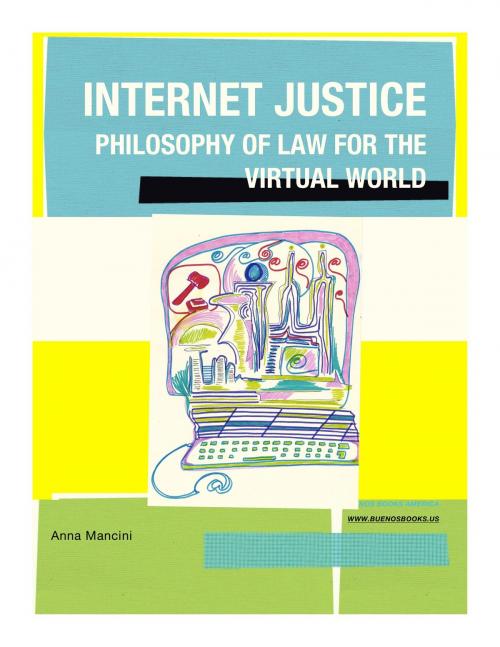Internet Justice, Philosophy of Law for the Virtual World
Nonfiction, Reference & Language, Law, Science & Technology, Ethics, Jurisprudence| Author: | Anna Mancini | ISBN: | 9781932848090 |
| Publisher: | BUENOS BOOKS AMERICA LLC | Publication: | December 20, 2013 |
| Imprint: | Language: | English |
| Author: | Anna Mancini |
| ISBN: | 9781932848090 |
| Publisher: | BUENOS BOOKS AMERICA LLC |
| Publication: | December 20, 2013 |
| Imprint: | |
| Language: | English |
Our law and its philosophy were conceived for a material economic world marked by scarcity and territoriality. Without the criterion of territoriality, the dominant philosophies of law are left bankrupt. This is especially the case for KELSEN's Pure Theory of Law, in which the territoriality criterion is the cornerstone. Since the world of Internet is marked by abundance rather than scarcity, it has no territorial boundaries and it is not material, it is easy to understand that it cannot be efficiently managed according to our traditional legal and philosophical principles. On the Internet, even the Aristotelian concept of justice -which gives each his own and shares a limited amount of goods- is old hat. Although our law only recognizes this concept of justice and its nuances -as in RAWLS' Theory of Justice-, it is however impossible to apply this idea of justice efficiently in cyberspace. This book proposes a philosophy of justice suited to the virtual world and some legal principles that law-makers could apply to act efficiently and help the development of the Internet and the Information Society.
Our law and its philosophy were conceived for a material economic world marked by scarcity and territoriality. Without the criterion of territoriality, the dominant philosophies of law are left bankrupt. This is especially the case for KELSEN's Pure Theory of Law, in which the territoriality criterion is the cornerstone. Since the world of Internet is marked by abundance rather than scarcity, it has no territorial boundaries and it is not material, it is easy to understand that it cannot be efficiently managed according to our traditional legal and philosophical principles. On the Internet, even the Aristotelian concept of justice -which gives each his own and shares a limited amount of goods- is old hat. Although our law only recognizes this concept of justice and its nuances -as in RAWLS' Theory of Justice-, it is however impossible to apply this idea of justice efficiently in cyberspace. This book proposes a philosophy of justice suited to the virtual world and some legal principles that law-makers could apply to act efficiently and help the development of the Internet and the Information Society.















